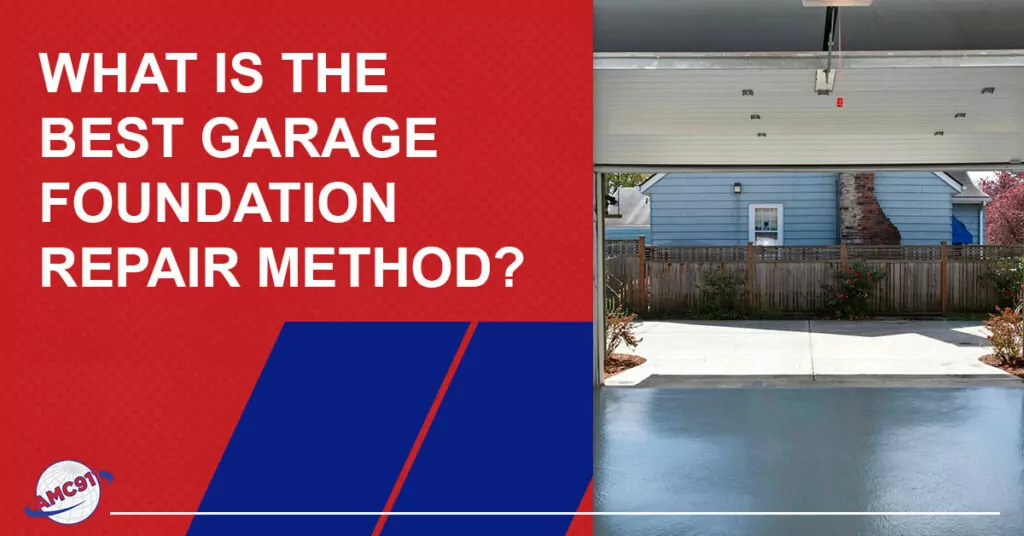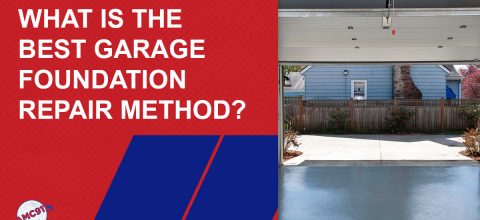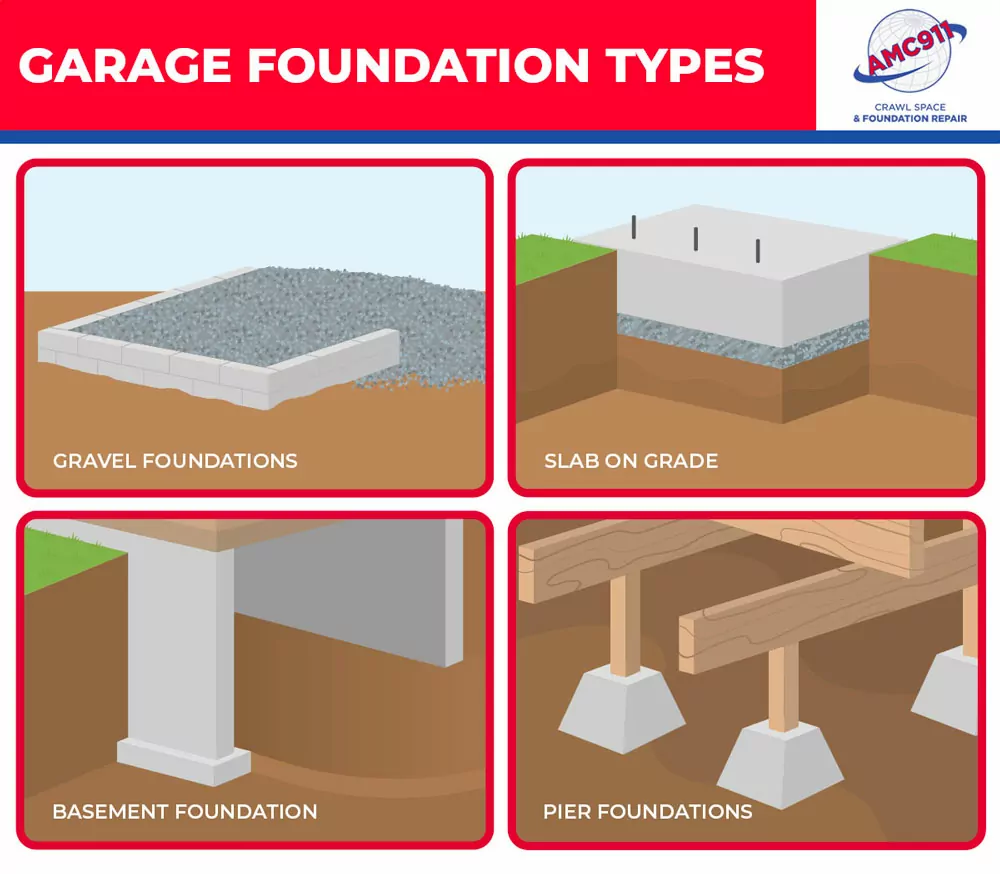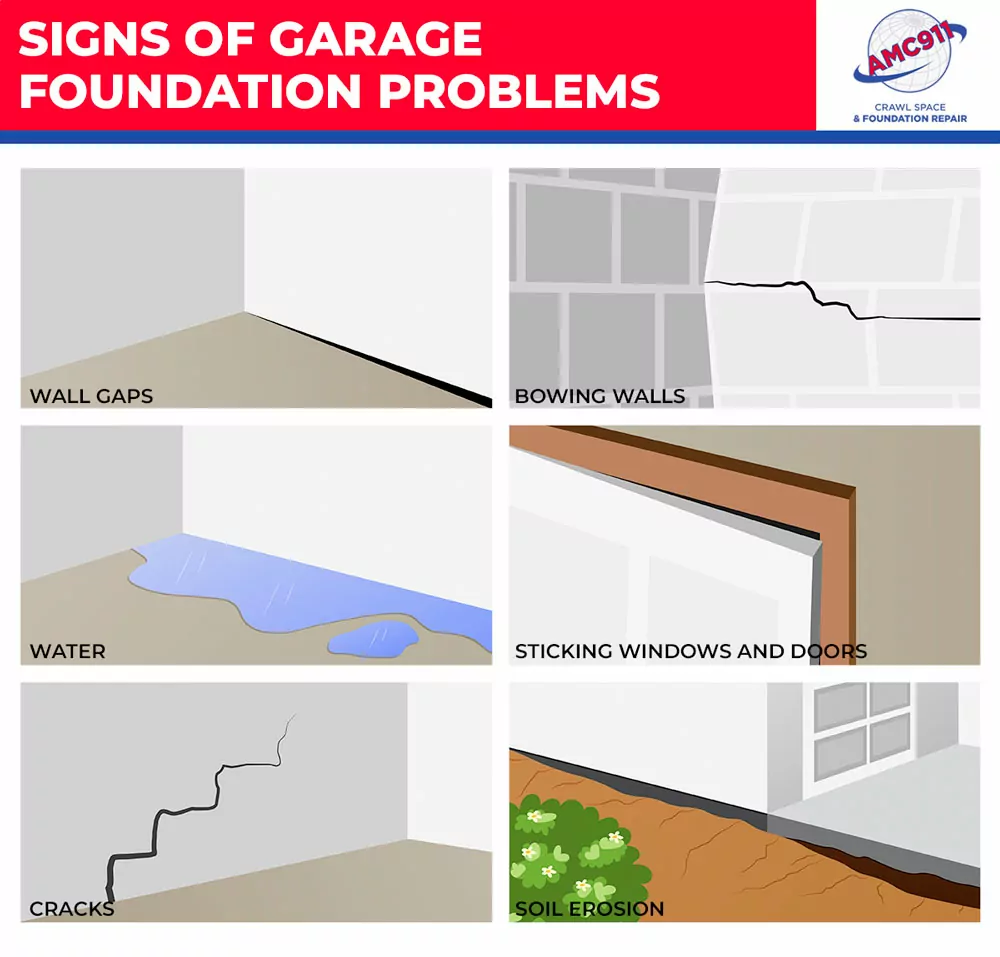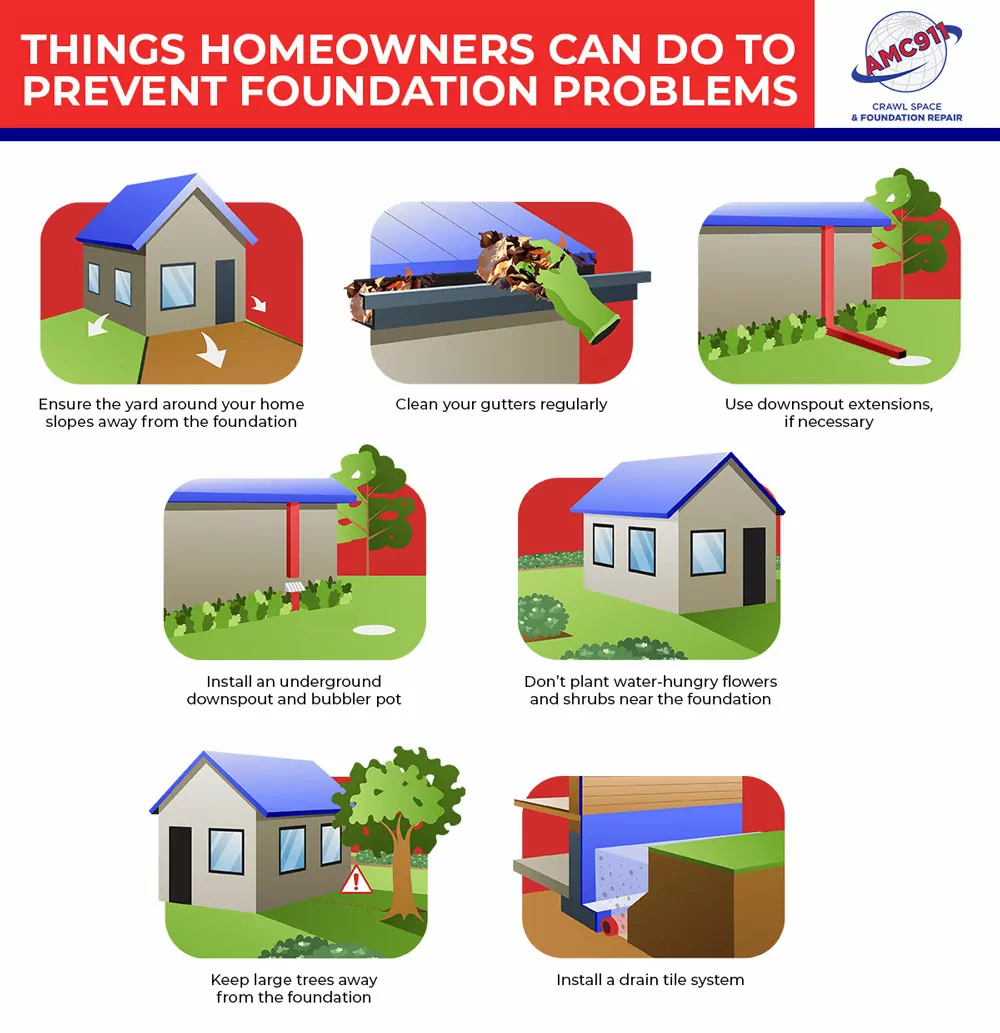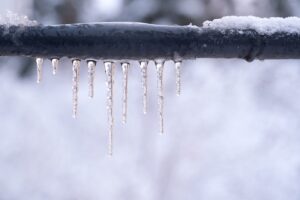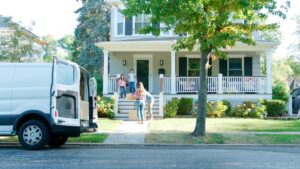If you’re reading this article, you’re probably worried that there’s a problem with your garage’s foundation. The good news is that not all garage foundation problems threaten the garage’s structural integrity. Small cracks due to concrete curing will not typically lead to additional problems. On the other hand, large cracks due to foundation settling or that lead to water intrusion require specialized attention from a foundation specialist. Choosing the best garage foundation repair method will depend on why it is happening and the extent of the damage.
Garage Foundation Types
The foundation supports the structure, which is also true of a garage foundation. Several options are available for this foundation type, depending on the area, soil conditions, and even the budget for the project. Here are a few common garage foundation types:
- Gravel Foundations: A stand-alone garage may sometimes be erected on a gravel foundation. A gravel foundation would consist of compacted gravel, which would be covered with loose gravel.
- Slab on Grade: This is one of the most common garage foundations because it is easy to put in place, is sturdy, and costs less than other foundation types. A slab-on-grade foundation can be used for both an attached or stand-alone garage. It is also a standard option for a carport.
- Basement Foundation: If you have a below-grade garage, you likely have a similar foundation to what would be used for a basement. This could include a concrete slab, footer, and basement walls.
- Pier Foundations: When building a garage in an area with unstable soil that would not support the structure’s weight, a pier foundation can be used. The piers can consist of concrete columns or steel helical piers installed at a depth where stable soil is available. Having multiple piers available distributes the weight of the garage over a larger area.
What Causes Garage Foundation Problems?
Any foundation could experience problems, including a garage foundation. This issue could occur for a few reasons, including the following.
- Differential settlement – Some settling of a foundation is expected, but when different parts of a garage foundation settle at different rates, it is an issue known as differential settlement. A problem with differential settlement puts pressure on the frame of the garage and can eventually lead to foundation failure. Common causes of differential settlement include soil moisture content, poor soil conditions, and load distribution.
- Hydrostatic Pressure – When excessive water is in the soil surrounding or under a foundation, it puts pressure on the foundation. It doesn’t take much hydrostatic pressure to cause garage foundation problems, and the issue is progressive.
Signs Of Garage Foundation Problems
As damage occurs to the garage foundation, minor problems can occur in the general area. These issues are the signs that foundation problems are happening. If you see some of these problems or if they worsen, you should call a foundation specialist for assistance.
- Wall Gaps – Gaps may appear where the walls meet the floor or ceiling.
- Bowing Walls – Below-grade garage foundations may have a problem with bowing walls. Bowing walls happen due to hydrostatic pressure, which pushes in on the walls and can cause them to bow. The walls may also crack under the pressure as well.
- Water – If you have water in the garage, it could indicate foundation problems. The underlying issue must be addressed before foundation repairs can take place.
- Sticking Windows and Doors – If you have windows or doors sticking when they open and close, it could be due to strain on the garage’s frame due to foundation problems.
- Cracks – As the garage foundation shifts, structural cracks could appear in the walls.
- Soil Erosion – If you notice changes in the soil near the garage foundation, including gaps or sinking soil, it could indicate problems with the foundation.
Best Methods Of Garage Foundation Repair
The correct garage foundation repair method will, of course, depend on what caused the problem. Here are a couple of options:
Underpinning
If the garage’s foundation has been damaged due to differential settlement, underpinning using piers will stabilize, strengthen, and lift the foundation as much as possible without causing damage.
Crack Repairs
Hairline cracks in the garage’s floor or walls can often be fixed with an injection of polyurethane foam. The foam expands to fill the crack and stops water from seeping in.
Can Garage Foundation Problems Be Prevented?
If you want to prevent trouble with your garage’s foundation, ensuring good drainage is crucial. Poor drainage around your garage’s foundation – or any foundation for that matter – can lead to many problems, including water damage, cracked walls, and compromised structural integrity.
One way to address drainage issues is by installing a drain tile system. This involves laying perforated pipes around the perimeter of your foundation. The pipes collect and divert groundwater away from the foundation, preventing it from seeping into the soil and causing damage. Not only does this system keep your foundation dry, but it also promotes healthy soil conditions by preventing oversaturation and erosion.
Another solution is to regrade your yard, if necessary, so it slopes away from the garage. A professional landscaper can assess your yard and determine the best way to adjust the slope for optimal drainage.
Regular gutter maintenance is also essential for proper drainage around your garage’s foundation. Clogged gutters prevent water from flowing freely and can lead to water pooling around the foundation. Cleaning your gutters at least twice a year can ensure that rainwater flows where it should and doesn’t cause any damage.
Finally, using downspout extensions can help direct water away from the foundation and prevent damage caused by water pooling. These extensions should be long enough to carry water away from the garage and into a well-draining area.
A periodic foundation inspection for your garage can also be beneficial because it allows you to catch issues early on so that you can take proactive steps to prevent them from turning into serious problems that will be more expensive to fix.
During a garage foundation inspection, a professional will thoroughly examine the foundation for any signs of cracking, settling, or other structural damage. They may also look for signs of moisture intrusion or other issues that could compromise the integrity of your garage’s foundation.
If you have any questions about our garage foundation repair options, give AMC911 a call today. One of our dedicated foundation specialists will get back to you.

